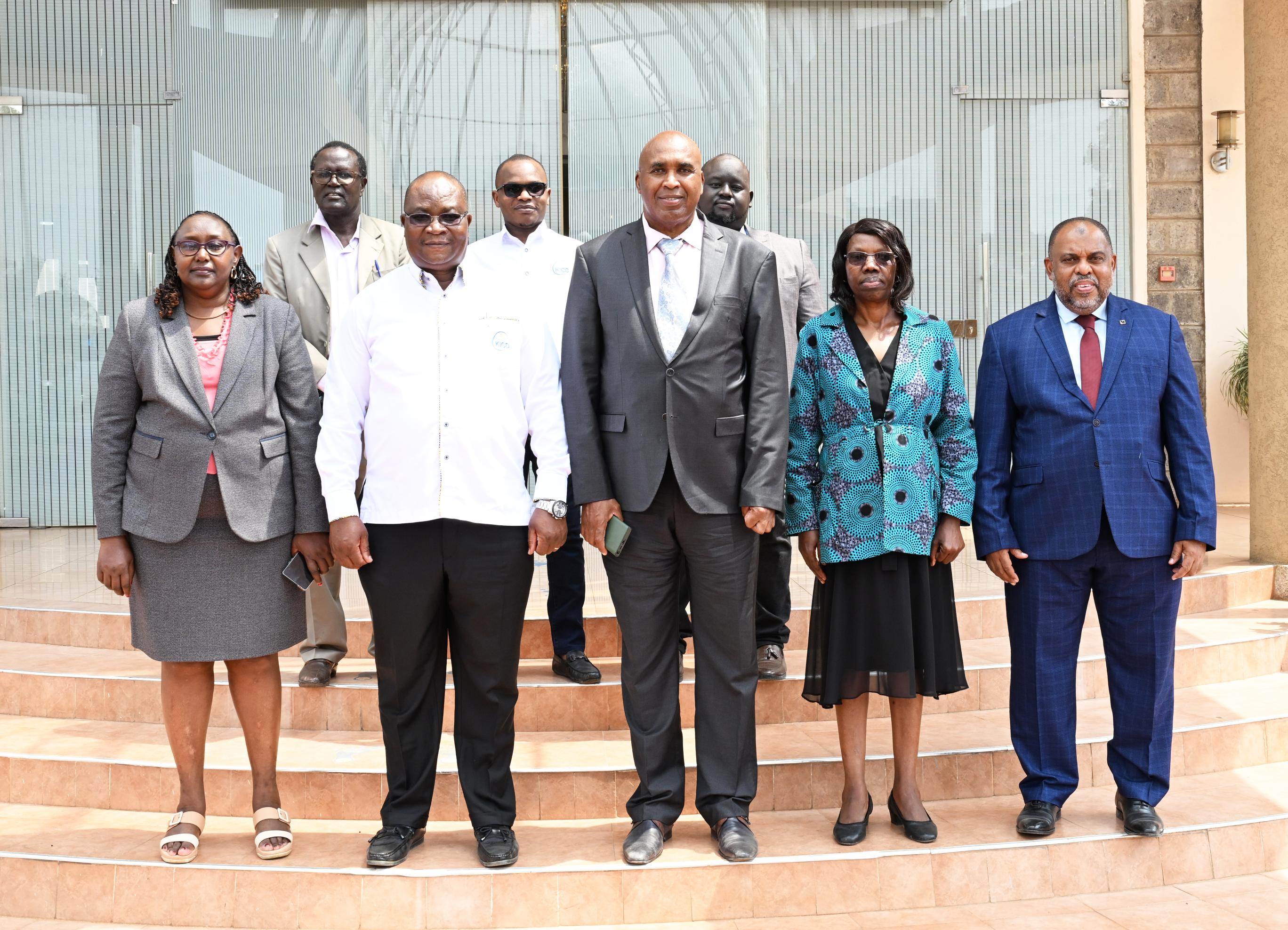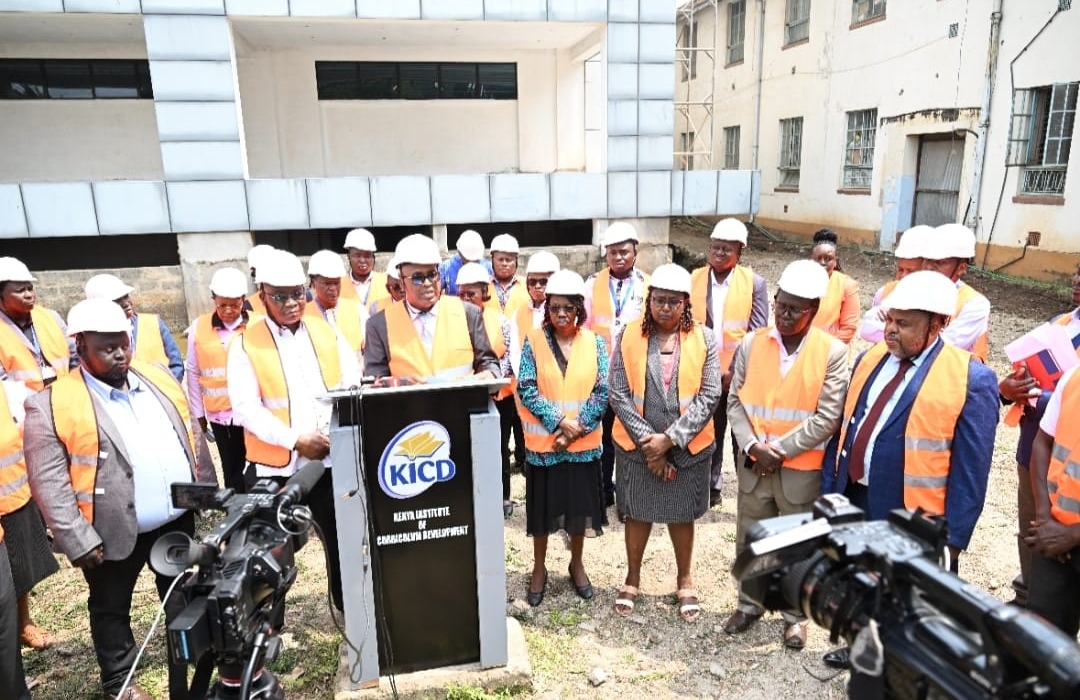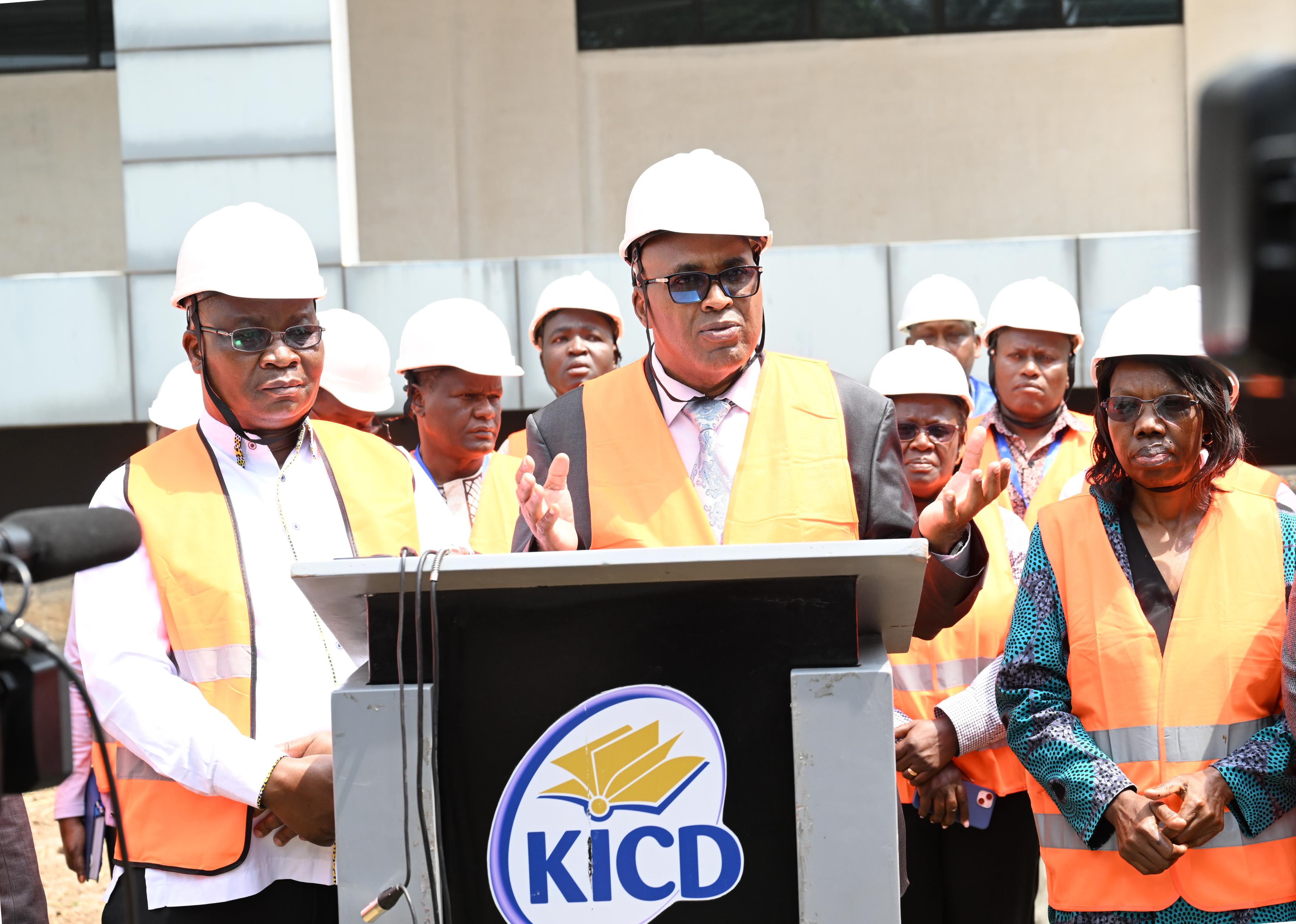
The Kenya Institute of Curriculum Development (KICD) has restarted the construction of the Education Resource Centre that is tipped to enable the expansion of the capability for the effective implementation of the Competency-Based Curriculum.
KICD said it would spend Sh400 million in moving the project ahead and make it operational by the end of this year.
The centre, KICD said, would be critical in enabling the institute undertake deeper research on rolling out new fields of study in schools, with the institute mulling introduction of aviation and marine science studies at earlier stages of schooling.
The centre, which is being put up at KICD’s headquarters on Murang'a Road, will also generate revenue for the institution that is currently dependent on state funding.

The project was started in 2011 and was expected to be completed within four years, but it stalled for one and a half decades due to lack of funds.
The project was to be implemented in six phases, but only the first phase was completed.
KICD chairman Prof Simon Gicharu said the institute had secured approval from Treasury to reallocate some of its funds to complete the building partially and make it operational by the end of this year.
He said that the Sh1.5 billion spent on putting up the first phase would now translate to value for money KICD.
“We have commenced phase two and the government has approved for us to spend Sh400 million and after phase two is complete, we will ensure that the building is put to good use,” he said.
Prof Gicharu spoke when he led KICD Council members on a tour of the construction site of the centre.
“Due to limited fiscal space, there has been slow progress toward completion. As a council, part of our mandate is to manage the assets of KICD and determine the provisions to be made for capital, recurrent expenditure, and reserves for the institute,” he said.

“Based on this, we sought Treasury’s approval to incur some expenditure from KICD to aid in the partial completion of this building. To ensure that Sh1.5 billion has been spent but the resource has been idle, it is good time for the council to reactivate the project so that it can be used for the purpose it was intended for at conception.”
Prof Gicharu said KICD had an understanding with the contractor that the second phase would be completed by the end of the year.
He noted that other than alleviating office shortage for KICD, it would also enable the institute to start getting revenue through provision of services such as conference facilities.
“The contractor has assured that by December this year, it will have completed the first three floors for use by KICD,” Prof Gicharu said.
“The partial completion will go a long way in providing income generation avenues through utilisation of conference facilities. We are strategically positioned with ample parking and a bird’s eye view of the city.”
“The government has challenged SAGAs to be self-sustaining, and when we complete this building, it will ensure that we are not relying on the exchequer 100 per cent, but we can also be able to generate revenue to support government endeavours,” he noted.
The additional space will also give room to KICD researchers and curriculum specialists to experiment, demonstrate, and test ideas as well as simulate and model concepts that are required for the delivery of CBC.
Among these include how to embed other fields, especially aviation and marine sciences.
He said that among the fields that will be modelled at the ERC centre include aviation and marine fisheries technology
“In the past, these two areas have been a preserve of a few institutions, but we want to ensure that our children, irrespective of where, can access these key areas. We will be demystifying aviation and marine science. We do not have decommissioned aircrafts or ship to teach these fields at our schools,” he said.

Prof Gicharu said the state would invest in simulators in the form of computer software that can then be used to expose young students to different fields at an early stage, which he noted would be critical in “catalysing interests and ensuring that there is equity” in the delivery of education.
“Soon, we will incorporate other subjects, including aviation and marine science, and fisheries in schools,” he said.
“A school will no longer need to have a decommissioned aeroplane as a requirement to be allowed to offer aviation classes. We are going to be creative as KICD and we will introduce aviation simulations in school. All a school would need is a classroom and a simulator. We will do the same with marine sciences and other areas where we can use simulations and also make learning interesting and fun. It will be our biggest achievement as KICD,” he said.
“Not all schools are able to do modern and expensive laboratories but we can be innovative and creative to apply means to ensure children access education.”
KICD CEO Prof Charles Ong'ondo noted that the operationalisation of the centre would enable KICD as it implements CBC.
“The ERC centre will be critical as the first batch of CBC learners will be going to grade 10 in 2026. It is supposed to host critical resources that KICD needs to leverage on so that we can guide the country in implementation of the CBC,” he said.












